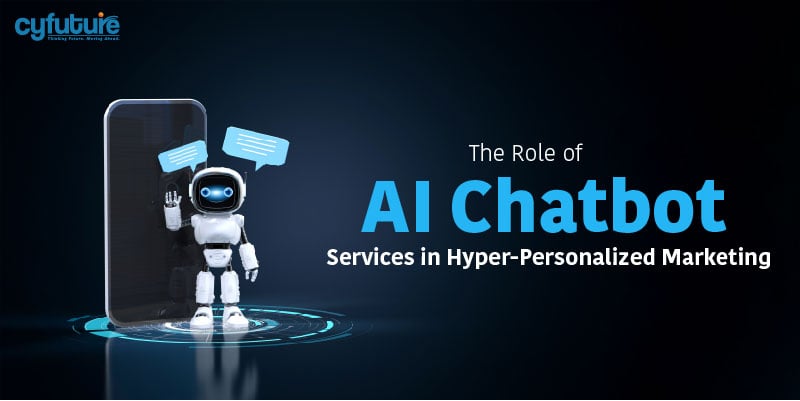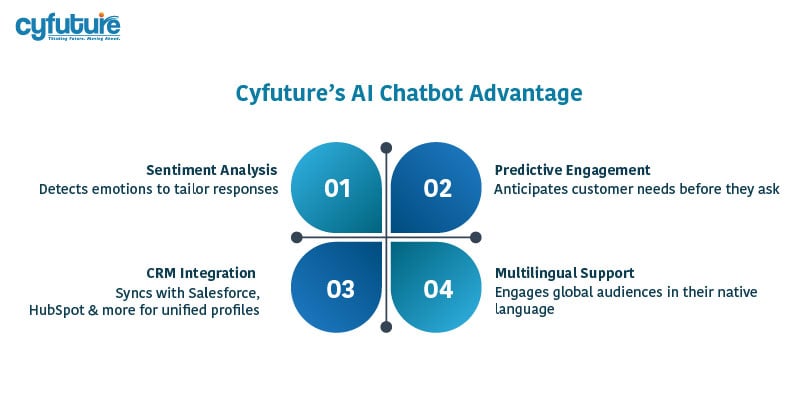-
Get Cloud GPU Server - Register Now!
Toggle navigation

In today’s digital-first world, businesses are constantly seeking innovative ways to engage customers and deliver personalized experiences. AI chatbot services have emerged as a game-changer in marketing, enabling brands to interact with consumers in real-time while offering hyper-personalized recommendations.
With advancements in artificial intelligence (AI), machine learning (ML), and natural language processing (NLP), chatbots are no longer just basic customer support tools—they are intelligent virtual assistants that enhance marketing strategies through hyper-personalization.
In this blog, we will explore how AI chatbot services are transforming marketing by delivering tailored interactions, improving customer engagement, and driving conversions.
AI chatbot services leverage artificial intelligence to simulate human-like conversations with users. Unlike rule-based chatbots that follow predefined scripts, AI-powered chatbots analyze user inputs, learn from interactions, and provide dynamic responses.
Key features of AI chatbot services include:
These capabilities make AI chatbots indispensable in delivering hyper-personalized marketing experiences.
Hyper-personalization goes beyond traditional personalization by using real-time data, AI, and behavioral analytics to deliver highly relevant content. According to a report by Accenture, 91% of consumers are more likely to shop with brands that provide personalized offers and recommendations.

AI chatbots provide instant, 24/7 responses, keeping users engaged without delays. For example, Sephora’s chatbot offers beauty tips and product suggestions, increasing user interaction.
Chatbots qualify leads by asking personalized questions and nurturing them with relevant content, boosting sales.
By automating repetitive queries, businesses reduce operational costs while maintaining high-quality support.
AI chatbots gather valuable customer insights, helping brands refine their marketing campaigns for better targeting.
Whether on WhatsApp, Facebook Messenger, or a brand’s website, AI chatbots deliver a unified experience across platforms.
Example: Amazon’s chatbot recommends products based on browsing history and past purchases.
Example: Airlines use chatbots to offer personalized flight deals and itinerary updates.
Example: Bank chatbots provide customized financial advice and fraud alerts.
Example: Chatbots schedule appointments and offer personalized health tips.
Example: Domino’s chatbot allows customers to reorder their favorite pizza with a single message.
AI chatbots collect vast amounts of customer data (conversations, purchase history, preferences) to deliver personalized experiences. However, this raises concerns about:
Solution: Businesses must implement end-to-end encryption, anonymize data, and allow users to opt out of tracking.
For chatbots to deliver hyper-personalized experiences, they must seamlessly integrate with:
Challenges:
Solution: Using cloud-based AI chatbot services with pre-built integrations or custom API development ensures smooth data exchange.
While AI chatbots excel in efficiency, they can sometimes feel robotic. Customers still expect:
Solution:
AI chatbot services are revolutionizing hyper-personalized marketing by delivering real-time, data-driven interactions that enhance customer experiences. From boosting engagement to driving sales, chatbots are becoming an essential tool for businesses looking to stay competitive.
As AI continues to evolve, chatbots will become even more intuitive, offering deeper personalization and seamless customer journeys. Brands that integrate AI chatbot services into their marketing strategies today will gain a significant edge in customer satisfaction and loyalty.
At Cyfuture, we provide cutting-edge AI chatbot solutions to help businesses automate and personalize their marketing efforts. Want to implement AI chatbots for hyper-personalized marketing?
By leveraging AI chatbot services, businesses can create meaningful connections with customers, driving long-term success in the digital age.